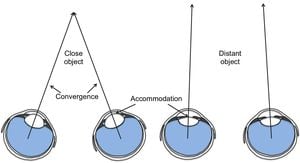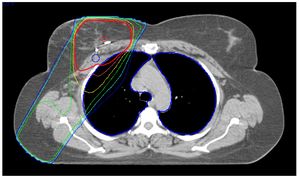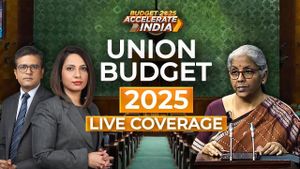Ken Martin has been elected as the new chair of the Democratic National Committee (DNC), stepping up to guide the party during turbulent times after considerable losses in the recent election. The vote, which took place on February 1, 2025, saw Martin secure 246.5 votes from the 428 members who participated, surpassing his closest competitor, Ben Wikler, who received 134.5 votes.
Martin, the longtime chair of Minnesota’s Democratic-Farmer-Labor Party, emerged as the leading candidate, bringing with him over 14 years of experience at the state level, where he did not lose any statewide races, achieving an impressive 25-0 record. This undefeated streak was pivotal to his candidacy, especially as the DNC aims to reconnect with working-class voters who have been drifting away from the party.
After the announcement, the DNC members celebrated, chanting, "Yes, we Ken!" Outgoing chair Jaime Harrison commended Martin, declaring the transition of power, saying, "Ken Martin is now the Chair of the Democratic Party." This election was characterized by the candidates' collective focus on rebuilding the party rather than ideological divisions, with agreements on the need for improved communication and infrastructure to support candidates nationwide.
During his campaign, Martin emphasized the need to stand firm against Donald Trump, promising: "My job is to get out there and define the Republicans. We will go on offense against Donald Trump." Such remarks resonate strongly within the party currently grappling with the realities of Trump’s presidency. With Republicans controlling substantial levers of power, the DNC faces the challenge of regaining trust and support from the voters, particularly among demographic groups where their representation has dwindled.
The election came after the democratic party faced substantial defeats on November 5, leaving them with no clear plan as they entered the next election cycles. Martin’s leadership will be put to the test as he seeks to unify the party and establish a coherent strategy. He’ll need to gather support from various factions within the party, noting, "We have one team, the Democratic Party, and we have one fight. The fight's not in here, it's out there." This rallying cry aims to motivate party members to focus outward, presenting Democrats as viable representatives of working people akin to Trump’s affluent backers.
Martin's win signifies both continuity and change within the party's leadership structure. His alignment with the Minnesota DFL reflects deep-rooted political connections and strategic positioning. His ability to finance campaigns and organize effectively at the grassroots has been underlined as key to securing his position. Martin will face the overwhelming task of rebuilding not only strategies but also the party’s overall image post-2024.
His competitors, including former Maryland Governor Martin O'Malley and Faiz Shakir, aimed to introduce more radical changes to the party dynamics, but Martin’s seasoned insider strategy won the day. The Democratic National Committee has laid out immediate plans for post-election reviews to address where they fell short last year and to establish actionable items before the upcoming midterms and the presidential election.
During his address after winning, Martin reiterated the need for change without losing sight of the party's core values. He stated, "We need to actively tell Americans how we can serve them." Through this, he signifies his commitment to connect with voters who have felt alienated, proposing focused initiatives to reconcile those relationships.
Martin’s vision incorporates addressing electoral pitfalls head-on and engaging with the party's diverse base to build trust. He’s aware of the importance of appealing across the spectrum from urban centers to rural districts, saying: "The fight right now is for working people throughout this country." His approach is not just about winning elections but also about nurturing long-term relationships with constituents.
By emphasizing partnership with local leaders and grassroots organizations, Martin intends to move away from focusing solely on high-profile endorsements. He signaled the need for the party to cultivate local figures as messengers, disregarding the celebrity culture often associated with campaign outreach, stating, "Instead of sending celebrities out, we should send workers out to talk to workers." Through strategic community engagement, Martin aims to penetrate voter bases underserved by the traditional campaign machinery.
Looking forward, Martin is tasked with ensuring Democratic candidates receive adequate support and outreach as the political climate intensifies under Trump’s administration. He will also be responsible for shaping the party’s funding strategies, which will be key to revitalizing its position across the board as they prepare for midterm elections.
With the backdrop of both attempting to recover from heavy losses and the growing division between moderate and progressive elements within the party, Martin's leadership will be pivotal as he seeks to unify Democrats under one banner, ready to take on the challenges headed their way. Democrats are optimistic but cautious, knowing change is both necessary and imminent.
The DNC's recent elections may provide insights on how the party intends to navigate the present crisis and the key figures within who will lead this charge. Whether Martin's election creates the momentum Democrats need to restore their foothold will be closely watched as discussions about identity and strategy continue well past the polls.



